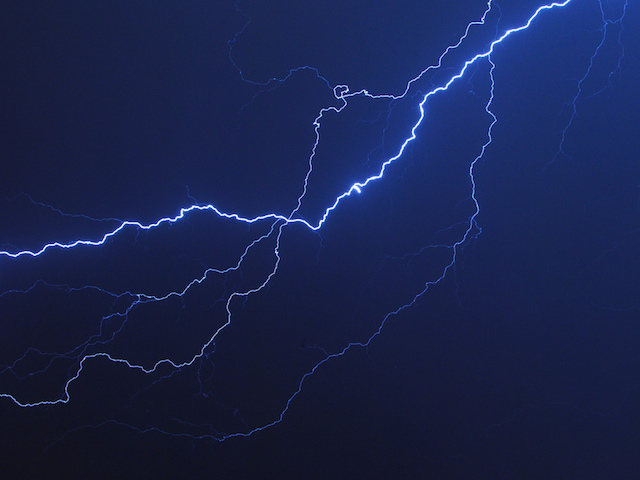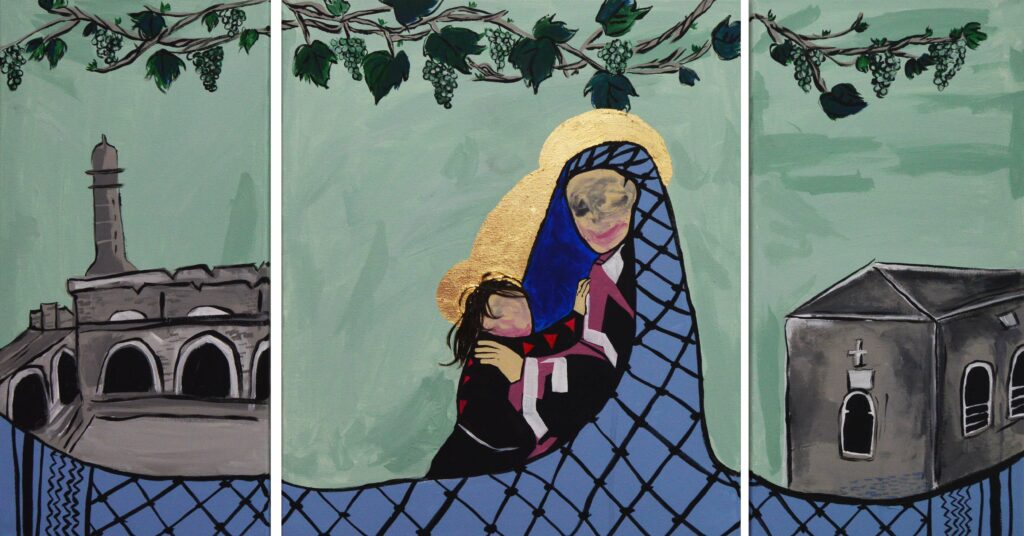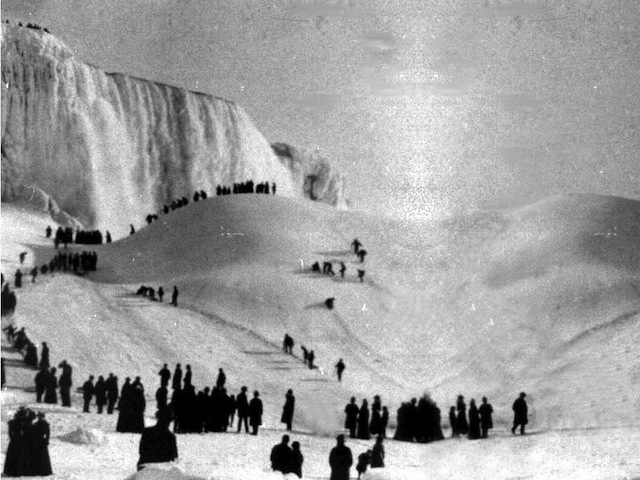A former student recalls the ups-and-downs of Ho’s cult of personality.

This essay is part of a Counterculturalists installment commissioned by AAWW to honor the life and legacy of Fred Ho, the radical composer and organizer who passed away in April 2014 after an eight-year battle with cancer. See our introductory post for a full list of contributions.
I saw a dying man today. Translucent plastic tubes dripped from his nostrils like sickness. Grey mists floated across eyes that once were eagle-sharp, missing nothing. Wasted muscle hung, useless as clusters of popped balloons atop a wooden pole, from skeletal legs that had not walked in far too long. Skin clung to ribs the way cellophane hugs leftovers, outlining every ridge and protrusion. Organs pumped laboriously, barely concealed by a veneer of flesh that whispered in a brittle voice of a life that once was. Death had announced its presence in this apartment like the taxman, insistent and unapologetic, saying defiantly to all the questioning eyes: “I think you’ve been expecting me.”
Familiar smells of old books and good food were interrupted by the clinical sting of syringes, gloves, drugs. Lavender and orange essences were still pungent in the air, along with success, ancient wood, blooming flowers and failure. All of it settled around me, fog-like, and I went through the motions as I’d done a hundred times: slipped off my shoes, disassembled my cell phone, hung my coat up on an exquisite rack beside a sheathed knife and a fine leather belt.
A hospital bed had displaced the futon as the room’s centerpiece, but hand-stitched blankets, silken sheets and colorful pillows surrounded him as ever. Cartons of medical supplies and bottles of pills covered his ‘matriarchal dining table’ where once great dishes and deep bowls full of his culinary exploits had stood. The walls were still adorned with portraits of himself, photographs of his works, posters of his music—betraying his mantra, “I have eliminated ego.”
Thirty pounds lighter than I’d ever seen him, writhing, unspeaking, lay Fred Ho. I could scarcely grasp that this was the same man who’d only three months ago thundered at me in this very room, commanded the rapt attention of a circle of strong and able young people, issued instructions on a visionary political campaign.
I hung back, watched my husband pull a stool up to his side, lift a ragged hand to his cheek and say, his voice breaking, “It’s been an honor to have been part of your mission on this planet. Give our regards to the extraterrestrials.” In a horrible, hollow place inside me I knew those would be the last words exchanged between them. Heavy steps led me across the carpet to look down into the face of a man who’d shaped, with an unyielding ferocity, my young adult life. I had not seen him in months; fear and guilt jostled for a place in my stomach.
I told him my name and reached for his fingers, bone-dry and warmed by the last of his life. A strangled moan escaped his throat, eyes moving blindly in the direction of my voice, his grip tightening. I wanted to wrench myself free and run right out of that dying apartment, out into the world of the living, out of the promise I and so many others had made to him years ago, that we’d carry his torch forward long after he was gone. But promises to this giant of a man are not lightly broken, and if—in his guttural calls—I could discern any meaning, then the message was clear: “My time is up. Your time is now.”
Soulful Science
The last four years of Fred’s life, that eye-blink of an era in which I entered what he called his “inner circle,” were populated by a cast of characters that arrived and left through a revolving door that kicked you hard on the way out.
Those fortunate enough to be on the inside were treated to the many luxuries his big heart offered—an endless supply of home-cooked meals, gifts procured from far-flung corners of the world, countless hours of fierce debate. But land yourself on his ‘list’—by arriving late, falling through on commitments, striving for anything less than excellence—and you’d be in a losing battle with a creature that suddenly grew horns, talons, and pincers and deployed them all where it hurt most.
It was no surprise, then, that he drew young people to him far more quickly than he did veterans or seasoned activists, with his merciless lambasting of the past—“The leftist groups of the sixties suffer from CYOA — the Cover Your Own Ass syndrome!”—and his unflappable hope in the future: “We will build a revolutionary matriarchal society that is governed by principles, not procedures!”
I suspect my initial reaction—upon hearing him hold court for the first time in an elegant brownstone in West Harlem that would serve as the headquarters for his brainchild, Scientific Soul Sessions (SSS)—was not unlike the others in their 20s before me: compelled by his language of “oppressed nationality leadership,” mesmerized by his bird-of-paradise wardrobe, repulsed by his military jargon and then, almost simultaneously, softened by stories of what he called his “war” with cancer.
During those days, as he was touching 52 years, he claimed to have achieved all he desired in the musical world. What he wanted now, he told us, was to build a political project that exposed the white left for the “liberal sellouts” they were, transcended the hypocrisies of 20th-century industrial socialisms, and returned to what he referred to as the “first and final communism”—an indigenous-centric society that put nature at the heart and producers (read: women) at the helm. A recipe, in other words, that was anathema to many in the generation before mine, who were breast-fed on Trotsky and teethed on the Western concept that Fred called manifest destiny Marxism.
Slowly, a cadre of young people gathered around him. We were a diverse group, hailing from every continent—including what Fred called the Occupied Territories of North America—but we shared a commonality of belonging (by birth or ambition) to a small, educated elite. What we needed, therefore, was to be “boot camped”, Fred would say, run through the wringer so we’d come out thicker-skinned on the other side. We’d need to write manifestos for our lives, five- and 10-year plans for the people we wanted to be and the masterpieces we each wished to create. We needed to become expert chefs and skilled orators. We must practice the samurai credo: “Live while preparing for death.” Most importantly, we’d need to “kill” our old selves, emerging from the chrysalis more beautiful and capable than before.
“Find your counterpart on the other side of the water,” he told us. “The investment banker, the Republican, the young oil tycoon. What do they do to achieve their goals? What time do they wake up in the morning? What do they sacrifice? Then ask yourself if you’re capable of taking them on, and winning.”
Lists, and enlisting
It is said that no man is indispensable. Fred pushed this adage to its limit, slicing friends, comrades, collaborators and (according to him) lovers out of his life as cleanly as one would with a scalpel. He referred to this process as “cleaning house” and deemed it necessary to preserve his own sanity, to avoid any more “toxicity” than the cocktail of chemicals his chemotherapy forced him to imbibe.
He perfected this ruthlessness during his years as a big band composer and conductor, a role he said allowed no room for sentiment or sentimentality. If a musician falls ill, find another one. If a better saxophonist makes himself known, sack the old one.
As painful as it was to watch this sacrifice of human beings, those of us who remained saw how this very mentality fed his vision—unfettered by doubt or regret—for a transformed society. So when he summoned six people into my untidy living room on W 129th street one May morning in 2011 for an emergency meeting, we all went, stepping over the carnage of those who’d gotten in his way.
Fred wanted to take on the task of freeing a man named Russell ‘Maroon’ Shoatz from over two decades in solitary confinement. The goal was twofold: “to create new revolutionary leaders by winning the release of a legendary freedom fighter”—a Black Panther who was approaching 70 years old and had spent most of his life in maximum security prisons.
He selected a handful of long-time organizers, black and white, to join the mission as advisers, but otherwise filled every seat on the council with a young person: I was to be Maroon’s biographer and official spokesperson; Fred’s saxophone student Ben Barson would lead the artistic and cultural front of the movement; Haitian graphic designer Arabelle Clitandre gave life to Maroon’s visions, designing books, pamphlets and posters of a man who hadn’t been photographed in three decades; 25-year-old Quincy Saul would collect, edit, and compile Maroon’s forgotten essays into a collection and tour the country, disseminating his ideas and raising funds for his campaign.
I doubt that any of us immediately grasped the enormity of the task we had been set, but Fred always had his eyes on the prize. As his cancer began to metastasize, tumors leaping from colon to lung, the disease eating away at his stomach and heart, Fred’s grit deepened and his daily dispatches to us went from long missives to bullet-pointed lists that made their way onto our refrigerator doors and bathroom mirrors.
—Your generation has been colonized by electronic media and technology, has atrophied in capabilities that a previous generation perfected, and surrounded itself by a culture of flakiness. YOU MUST DECOLONIZE.
—Never shun struggle or hard work. Stop taking things personally and cultivate a thick skin. Hold yourselves to the highest possible standard. MAKE ONE ANOTHER WALK THE GAUNTLET OF FIRE.
—All mistakes must be internalized as deep lessons and must never be repeated. Leave behind baggage, cut off cumbersome ties and travel lightly into the future. IT IS TIME TO ANSWER THE CALL OF HISTORY!
Of course, we pushed back. Some fought his analysis that they were silver-spoon-fed brats living in a cocoon of safety, comfort, and incompetence. We resisted his view that Facebook had made “self-congratulatory, self-obsessed codependent imbeciles” of many in our generation. We maintained our right to take breaks, even though, in his words, “no one takes vacations during a planetary crisis!” We tried hard not to hear devastating comparisons: “Fred Hampton led the Illinois chapter of the Black Panther Party at age 17 and was assassinated at 21; by your mid-20s you should be rising national leaders, not cry-babies with petty bourgeois aspirations of joining the ruling class, becoming slaves to mortgages and forming nuclear families!”
But we welcomed the challenge to excel and at times we even reveled in the honesty that cut deep but left some good scars. We found ourselves reciting his mantras back at one another: “On time is sublime!” “Ontological change, not intellectual change!” “No more Chicken Little-ism: stop whining that the sky is falling down!” We worked round the clock at our jobs and on the campaign. One young Pakistani woman, Alia Ahmed, even coined the verb “Ho-ing” to describe our collective workflow that revolved around his militant timetable. “I can’t come out tonight,” she’d tell me, while composing a piece he’d commissioned for an event on the occupation of Palestine. “I have to Ho.”
Ancestors
Emptiness, shame, and longing erected tents in my heart the day Fred died. In the last three months of his life he’d pushed me—frustrated by my inability to let him “pour iron and fire” into my soul”—further to the margins of his inner circle and finally out into that patch of world where there was no possibility of communication, up until the night before his passing.
It is a testament to his life choices that all but one of those who surrounded him during his last earthly hours were relative newcomers to his life, people who’d known him less than a decade but had suspended all daily functions to be close to him. There was no dearth of love and tenderness in his apartment that night. No shortage of willing hands to caress him or hold him down as he flailed in death’s arms, or to soothe him when he begged us to kill him then and there.
Still, the absences were glaring, gaps in the room where friends and family ought to have stood, people he had scorched and burned out of the mosaic of his life. It was what we called “classic Fred,” to be surrounded at this crucial movement by what he’d created and also what he’d destroyed.
I was alone, I think, when he trained those unseeing eyes on me and said, with a huge effort, “I’m not going to live much longer.” I’d heard the statement a hundred times, a thousand times. It had become an almost comical refrain among those of us who knew him best; he repeated it at every meeting, every concert. It was his call to action, his trump card, sometimes even his excuse for cruelty. It boosted him up, as though being stalked by death made him somehow larger than life.
When he spoke them now, the words had lost all those hues. As they dissipated into the air around him, he tore the oxygen tubes from his nose and turned his face to the wall. He never believed in idle chatter; I knew then that he had said all he needed to.
Gregory David Roberts once wrote, “Fate gives all of us three teachers, three friends, three enemies, and three great loves in our lives. But these twelve are always disguised, and we can never know which one is which until we’ve loved them, left them, or fought them.”
I had loved Fred, fought him, and left him. But his teachings are what will stay with me always. Is it possible, ever, to forget the words of a man who repeatedly assures you: “I will keep kicking your ass, until you can kick mine harder”?
MORE IN THE COUNTERCULTURALISTS TRIBUTE TO FRED HO:
Fred Ho, “From Banana to Third World Marxist”
Fred Ho, “Beyond Asian American Jazz: My Musical and Political Changes in the Asian American Movement”
Marie Incontrera, “All The Colors of Life: A Celebration of Fred Ho”
Bill V. Mullen, “A Hundred Flowers of Revolutionary Hope”
Diane Fujino, “Fred Ho’s Radical Imagination”



